Mozambique: Demobilized guerrillas seize office of Renamo leader - AIM report
Candidates lists next week as CNE rushes to 10 October – but legal questions remain
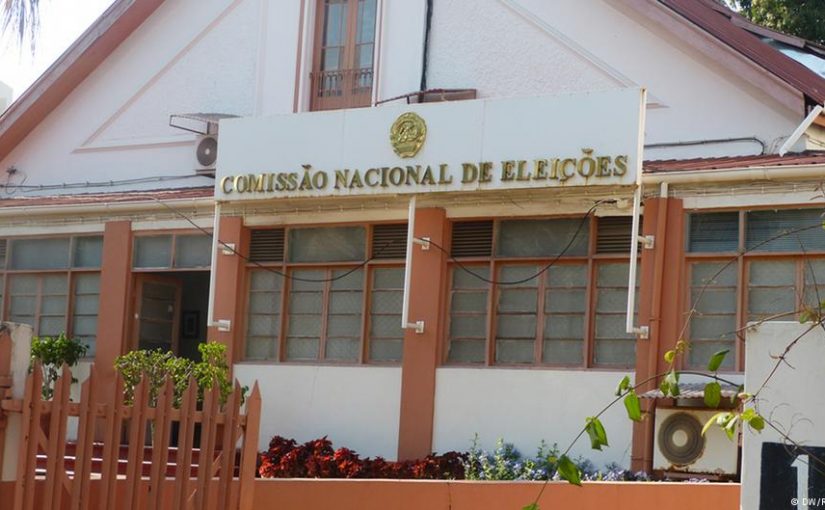
Approval of new legislation by parliament 19 July has set elections authorities racing to catch up and hold elections in 53 municipalities as planned on 10 October. The National Elections Commission is expected to agree the submission of candidates lists for municipal assembly 1-10 August, and political parties are also rushing to complete their lists. The electoral campaign will be 25 September through 7 October, followed by a two-day break before voting on 10 October.
The new municipal election legislation is also important because it will be the template for laws governing the election of governors from 2019 and district administrators from 2024.
The key change agreed by the late Renamo head Afonso Dhlakama and President Filipe Nyusi is the end of direct election of mayors, and instead the agreement that mayors, district administrators, and governors will be the head of the list for assembly of the party, coalition, or citizen’s list which receives the most votes (but not necessarily a majority). This prevents individuals from standing as independent candidates.
The constitution was amended in May to reflect this, and in June the Council of Ministers (CM) submitted to parliament (Assembleia de Republica, AR) a draft law responding to these changes, to replace laws 7/2013 and 10/2014. Two AR commissions had some disagreements with the CM, and also saw gaps in the law, and so proposed changes. Many of the changes were minor and typical of debates among lawyers – for example should the results be posted (afixar) or pinned (fixar) outside the polling station, and should the law talk of electoral operations (operacoes) or acts (actos)?
But some changes were substantive, and this newsletter summaries those changes.
Three issues remain unresolved. Two are what happens if the mayor dies or quits, and can a non-resident of a municipality be its mayor. The CM submitted revisions to a second law, 2/97, which sets out the legal basis for municipalities, which had proposals for these issues. But disagreements were too strong and this law will be negotiated between now and the October regular session of parliament – leaving two gaps in the electoral law.
The other involves imprecise changes: will invalid votes be checked, as in the past?
Cameras curbed
One important change to protect confidentiality of the vote was introduced by parliament (Assembleia de Republica, AR). There had been complaints in the previous election that officials such as heads of schools were requiring their staff to submit photos of their marked ballot papers to prove they voted for Frelimo. The law now expressly bans the use of mobile phones and cameras within the voting booths (art 76 & 170 of CM draft.). Camera use is still permitted elsewhere in the polling station.
There were also complaints that Frelimo-aligned civil society observer groups sometimes included quite senior government officials, and opposition voters found it intimidating to see such people observing the voting. Both the CM and the AR added restrictions that middle and senior level district and provincial officials as well as elected members of any assembly cannot be election observers. (art 195)
CM proposals changed
Parliament rejected six Council of Ministers (CM) proposals.
+ d’Hondt: In elections for parliament, provincial assembly and previously for municipal assembly, seats are assigned to parties using the d’Hondt system. The CM proposed a major change, that instead of d’Hondt that “seats are assigned according to their order of precedence”. This makes no sense, so the AR specified that the d’Hondt system continues.
+ Invalid votes (nulos) are no longer checked. In all previous elections, all invalid ballot papers were sent to the National Elections Commission (CNE) to be reconsidered, but the CM thought this could be done by the district or city election commission. Parliament said no and removed that provision. (art 111) However, the CM had also removed the article in the law (art 133 of law 7/13) which said that nulos were reconsidered by the CNE. So there is now no reconsideration of invalid votes in the law, and presumably it will not be done. This is an issue because a vote is valid if the intent of the voter is clear, but some polling station officials reject as invalid ballot papers where the X or fingerprint goes into an adjoining box, even when then intent in clear, and these votes are accepted by the CNE.
+ Members of the national parliament are called “deputies” and the CM used this for municipal assemblies, but the AR rejected this and just calls them members.
+ Prisoners can stand. The CM wanted to prevent from standing for election anyone serving a “major” prison sentence, but parliament said this violates the constitution which says that sending someone to prison cannot take away their other rights. (art 12) It appears that prisoners have the right to register and vote.
+ Party membership. To be a candidate a person has to be selected by a party, but does not have to be a member of that party. But in an obscure section on the procedures if someone leaves the list, which they can do in the 10 days after the list is published, the CM proposed that the party choose a replacement, who must be a member of the party. (Art 29) The AR accepted that the party chooses the last minute substitute, but did not require party membership.
+ Changing head of list. The CM in its proposal also gave the party the right to choose a replacement of a head of list who resigned, but the AR said no, it had to be the next on the list. (Art 29)
Two CM proposals were changed. The final approved versions are:
+ Decisions of local elections officials can be challenged in a district or city court, and that decision appealed directly to the Constitutional Council. (Art 8) In the CM version, appeal rights to CC were unclear. (Art 156)
+ The number of ballot papers for each polling station should be 5% more than the number of registered voters (to account for spoiled ballot papers and people who can vote at a different polling station), rather than 10% as proposed by the CM. This reflects opposition concerns that too many spare ballot papers could be misused. (art 72)
And the AR added four changes of its own.
+ Police presence. In all elections, the police have been required to stay 300 metres away from polling stations. A confusing AR redrafting with a double negative allows one policeperson, but not the armed forces or more police, to be in the polling station. (Art 83 & 93)
+ Any citizen can denounce misuse of state cars and other state resources in the campaign; it is not just parties who can bring such complaints to court. (Art 156)
+ Student and work cards cannot be used for identification, because they are too easy to fabricate. (art 77)
+ Copies of the official results sheets are also to be given to the polling station staff nominated by political parties.(Art 108)
And the AR 1st commission tabled a change to increase transparency, then withdrew it.
+ Observing the count. As one its initial changes, the 1st commission proposed that “As part of electoral transparency, voters may watch the count at the polling station” but from a distance of 300 metres away, which is too far away to see or hear anything. (art 59) But it then withdrew the change, saying that “its content is sufficiently regulated elsewhere”.
In 2013 municipal elections in Quelimane the main opposition MDM called on voters to monitor the count. Police intervened with substantial violence to disperse voters, which suggests that popular monitoring is not permitted. This would have legalised and regularised such popular vigilance, and party agents and journalists who are allowed in to monitor the count inside the polling station would surely communicate by phone or messaging with those standing outside. CORRECTION: There was a small error in the previous Bulletin. This proposal came from the 1st commission, not the CM, and the 1st commission then withdrew its own proposal.
Three issues remain unresolved
With overlapping changes and the failure to discuss the second municipal law, three issues remain unclear: Will invalid votes be rechecked? (noted above) If a mayor dies of resigns, who replaces them? Can the mayor be registered in a different city? (discussed below)
Who becomes mayor?
The CM proposal left a gap – what happens if two parties have exactly the same number of votes (rare, but will happen)? The AR decided that if two lists have the same number of votes and are most voted, there should be a second round just between those two lists. (art 135)
But the question of who would replace the mayor if they died, quit or were ousted was to be resolved in the other law, the revision of 2/97, which was not considered at the special session. The order of party lists remains fixed for the 5-year term of the assembly, but the CM draft proposes that the party or coalition most voted for municipal assembly would choose the person “best positioned” (“melhor posicionado”) on the list – and “best positioned” is not defined, although elsewhere the draft makes clear it need not be head of the list. (art 59 and art 96-A of 2/97 revision proposal) This does seem to give the party the right to choose someone other than the highest person on the list.
This is unlikely to be acceptable to parliament, which would probably follow the model of article 137 of the CM draft electoral law, which was accepted by the AR. That article covers the death of a candidate during the election, and says their place is taken by the next person on this list. Probably what will be approved in October for substituting the mayor.
Must mayor and assembly members be local?
The CM proposals suddenly raised the possibility that candidates on a party list need not be local, and this was challenged by parliament’s 1st commission (Constitutional Affairs). It notes that the recently passed constitutional amendments say that the municipal assembly “is elected by citizens resident in the municipality,” thus to register to vote a person must be resident locally. But the CM draft law simply says that a candidate must be registered. Could it be in another municipality?
The assumption is always that candidates must be registered locally, but the section (art 85) on who can vote in a polling station where they are not registered, questions this. The law includes the normal list who can vote at any polling station: polling stations staff, party agents, police, journalists, and observers. But the CM added one more: “candidates for mayor who have registered in any municipality, even if they are not registered in this one.” (art 85) This clearly implies candidates for mayor need not be from the same municipality. The AR rejected this, but it remains unclear if candidates this year must be local.
The CM draft to revise the basic municipal law (2/97) explicitly would allow three candidates for municipal assembly, including the head of the list, to come from other municipalities. (art 96-A) Based on their report on the electoral law, it seems highly likely that the AR 1st commission will hold that to be unconstitutional.
Comment: Parties versus prominent people
Most democracies face challenges over decentralisation – how much power is retrained by the national party, how much is devolved to local parties branches, and whether directly elected mayor gain too much personal power. Both Renamo and Frelimo saw this happen in 2008. For Frelimo, Eneas Comiche became too popular and was too honest for party barons, and was not allowed to stand for re-election as Maputo mayor in 2008. At the same time, Daviz Simango became too popular as mayor of Beira, and at the last minute Renamo head Afonso Dhlakama did not let him stand as Renamo candidate, but in a few days he was able to stand as an independent and was overwhelmingly elected – and set up a new party, the MDM.
Neither party was prepared to allow a mayor to gain that much personal power, thus the agreement to end direct election of mayors. The naming of the head of the list, and also the number two, are much more controlled by the parties, and it will be harder for a future Comiche or Daviz to escape the party barons and patronage systems.
Several Council of Ministers (CM) proposals which would further have strengthened national party power in the municipalities, by giving parties more power over how the major is replaced if they die or quit, requiring candidates to be party members, allowing parties to change the head of list, and allowing parties to bring in mayoral candidates from outside. However, parliament seems to support more local democracy, and has already rejected some of these.
Texts: The CM draft laws and AR commission opinions are posted on http://cipmoz.org:9000/eleicoes2018/
By Joseph Hanlon


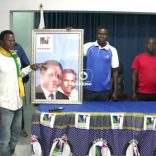
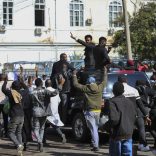
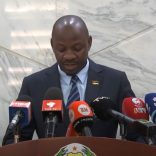
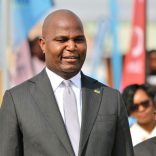
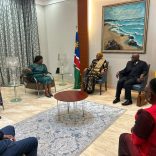





Leave a Reply
Be the First to Comment!
You must be logged in to post a comment.
You must be logged in to post a comment.